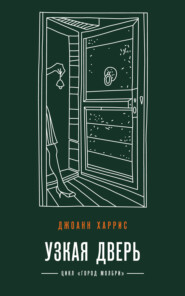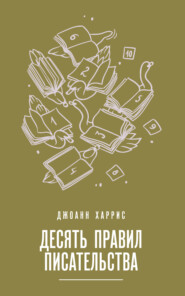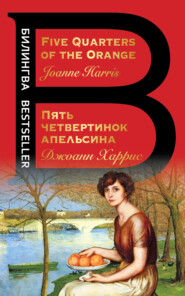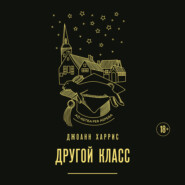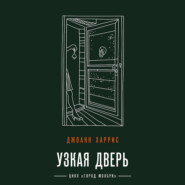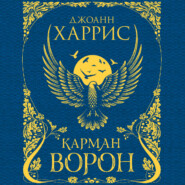По всем вопросам обращайтесь на: info@litportal.ru
(©) 2003-2025.
✖
Шоколад / Chocolat
Настройки чтения
Размер шрифта
Высота строк
Поля
2
February 12, Ash Wednesday
Actually the bells woke us. I hadn’t realized quite how close we were to the church until I heard them, a single low resonant drone falling into a bright carillon dommm fla-di-dadi dommmm – on the downbeat. I looked at my watch. It was six o’clock. Grey-gold light filtered through the broken shutters onto the bed.
I stood up and looked out onto the square, wet cobbles shining. The square white church tower stood out sharply in the morning sunlight, rising from a hollow of dark shopfronts; a bakery, a florist, a shop selling graveyard paraphernalia; plaques, stone angels, enamelled everlasting roses… Above their discreetly shuttered facades the white tower is a beacon, the roman numerals of the clock gleaming redly at six-twenty to baffle the devil, the Virgin in her dizzy eyrie watching the square with a faintly sickened expression. At the tip of the short spire a weathervane turns – west to west-northwest – a robed man with a scythe. From the balcony with the dead geranium I could see the first arrivals to Mass. I recognized the woman in the tartan coat from the carnival; I waved to her, but she hurried on without an answering gesture, pulling her coat protectively around her. Behind her the felt-hatted man with his sad brown dog in tow gave me a hesitant smile. I called down brightly to him, but seemingly village etiquette did not allow for such informalities, for he did not respond, hurrying in his turn into the church, taking his dog with him.
After that no-one even looked up at my window, though I counted over sixty heads – scarves, berets, hats drawn down against an invisible wind – but I felt their studied, curious indifference. They had matters of importance to consider, said their hunched shoulders and lowered heads. Their feet dragged sullenly at the cobbles like the feet of children going to school. This one has given up smoking today, I knew; that one his weekly visit to the cafe, another will forgo her favourite foods. It’s none of my business, of course. But I felt at that moment that if ever a place were in need of a little magic… Old habits never die. And when you’ve once- been in. the business of granting wishes the impulse never quite leaves you. And besides, the wind, the carnival wind was still blowing, bringing with it the dim scent of grease and candyfloss and gunpowder, the hot sharp scents of the changing seasons, making the palms itch and the heart beat faster. For a time, then, we stay. For a time. Till the wind changes.
We bought the paint in the general store, and with it brushes, rollers, soap and buckets. We began upstairs and worked downwards, stripping curtains and throwing broken fittings onto the growing pile in the tiny back garden, soaping floors arid making tidal waves down the narrow sooty stairway so that both of us were soaked several times through. Anouk’s scrubbing-brush became a submarine, and mine a tanker which sent noisy soap torpedoes scudding down the stairs and into the hall. In the middle of this I heard the doorbell jangle and looked up, soap in one hand, brush in the other, at the tall figure of the priest.
I’d wondered how long it would take him to arrive.
He considered us for a time, smiling. A guarded smile, proprietary, benevolent; the lord of the manor welcomes inopportune guests. I could feel him very conscious of my wet and dirty overalls, my hair caught up in a red scarf, my bare feet in their dripping sandals.
“Good morning.” There was a rivulet of scummy water heading for his highly polished black shoe. I saw his eyes flick towards it and back towards me. “Francis Reynaud,” he said, discreetly sidestepping. “Cure of the parish.”
I laughed at that; I couldn’t help it.
“Oh, that’s it,” I said maliciously. “I thought you were with the carnival.”
Polite laughter; heh, heh, heh.
I held out a yellow plastic glove.
“Vianne Rocker. And the bombardier back there is my daughter Anouk.”
Sounds of soap explosions, and of Anouk fighting Pantoufle on the stairs. I could hear the priest waiting for details of Monsieur Rocker. So much easier to have everything on a piece of paper, everything official, avoid this uncomfortable, messy conversation.
“I suppose you are very busy this morning.”
I suddenly felt sorry for him, trying so hard, straining to make contact. Again the forced smile.
“Yes, we really need to get this place in order as soon as possible. It’s going to take time! But we wouldn’t have been at church this morning anyway, Monsieur le Curе. We don’t attend, you know.”
It was kindly meant, to show him where we stood, to reassure him; but he looked startled, almost insulted.
“I see.”
It was too direct. He would have liked us to dance a little, to circle each other like wary cats.
“But it’s very kind, of you to welcome us,” I continued brightly. “You might even be able to help us make a few friends here.”
He is a little like a cat himself, I notice; cold, light eyes which never hold the gaze, a restless watchfulness, studied, aloof.
“I’ll do anything I can.” He is indifferent now he knows we are not to be members of his flock. And yet his conscience pushes him to offer more than he is willing to give. “Have you anything in mind?”
“Well, we could do with some help here,” I suggested. “Not you, of course”– quickly, as he began to reply. “But perhaps you know someone who could do with the extra money? A plasterer, someone who might be able to help with the decorating?”
This was surely safe territory.
“I can’t think of anyone.” He is guarded, more so than anyone I have ever met. “But I’ll ask around.”
Perhaps he will. He knows his duty to the new arrival. But I know he will not find anyone. His is not, a nature which grants favours graciously. His eyes flicked warily to the pile of bread and salt by the door.
“For luck.” I smiled, but his face was stony. He skirted the little offering as if it offended him.
“Maman?” Anouk’s head appeared in the doorway, hair standing out in crazy spikes. “Pantoufle wants to play outside. Can we?”
I nodded.
“Stay in the garden.” I wiped a smudge of dirt from the bridge of her nose. “You look a complete urchin.” I saw her glance at the priest and caught her comical look just in time. “This is Monsieur Reynaud, Anouk. Why don’t you say hello?”
“Hello!” shouted Anouk on the way to the door. “Goodbye!”
A blur of yellow jumper and red overalls and she was gone, her feet skidding manically on the greasy tiles. Not for the first time, I was almost sure I saw Pantoufle disappearing in her wake, a darker smudge against the dark lintel.
“She’s only six,” I said by way of explanation.
Reynaud gave a tight, sour smile, as if his first glimpse of my daughter confirmed every one of his suspicions about me.
3
Thursday, February 13
Thank God that’s over. Visits tire me to the bone. I don’t mean you, of course, mon pere; my weekly visit to you is a luxury, you might almost say my only one. I hope you like the flowers. They don’t look much, but they smell wonderful. I’ll put them here, beside your chair, where you can see them. It’s a good view from here across the fields, with the Tannes in the middle distance and the Garonne gleaming in the far. You might almost imagine we were alone. Oh, I’m not complaining. Not really. But you must know how heavy it is for one man to carry. Their petty concerns, their dissatisfactions, their foolishness, their thousand trivial problems…
On Tuesday it was the carnival. Anyone might have taken them for savages, dancing and screaming. Louis Perrin’s youngest, Claude, fired a water-pistol at me, and what would his father say but that he was a youngster and needed to play a little? All I want is to guide them, mon pere, to free them from their sin. But they fight me at every turn, like children refusing wholesome fare in order to continue eating what sickens them.
I know you understand. For fifty years you held all this on your shoulders in patience and strength. You earned their love. Have times changed so much? Here I am feared, respected… but loved, no. Their faces are sullen, resentful. Yesterday they left the service with ash on their foreheads and a look of guilty relief. Left to their secret indulgences, their solitary vices. Don’t they understand? The Lord sees everything. Isee everything. Paul-Marie Muscat beats his wife. He pays ten Avesweekly in the confessional and leaves to begin again in exactly the same way. His wife steals. Last week she went to the market and stole trumpery jewellery from a vendor’s stall. Guillaume Duplessis wants to know if animals have souls, and weeps when I tell him they don’t. Charlotte Edouard thinks her husband has a mistress – I know he has three, but the confessional keeps me silent.
What children they are! Their demands leave me bloodied and reeling. But I cannot afford to show weakness. Sheep are not the docile, pleasant creatures of the pastoral idyll. Any countryman will tell you that. They are sly, occasionally vicious, pathologically stupid. The lenient shepherd may find his flock unruly, defiant. I cannot afford to be lenient. That is why, once a week, I allow myself this one indulgence. Your mouth is as closely sealed, mon pere, as that of the confessional. Your ears are always open, your heart always kind. For an hour I can lay aside the burden. I can be fallible.
We have a new parishioner. A Vianne Rocher, a widow, I take it, with a young child. Do you remember old Blaireau’s bakery? Four years since he died, and the place has been going to ruin ever since. Well, she has taken the lease on it, and hopes to reopen by the end of the week. I don’t expect it to last. We already have Poitou’s bakery across the square, and, besides, she’ll never fit in. A pleasant enough woman, but she has nothing in common with us. Give her two months, and she’ll be back to the city where she belongs. Funny, I never did find out where she was from. Paris, I expect, or maybe even across the border. Her accent is pure, almost too pure for a Frenchwoman, with the clipped vowels of the North, though her eyes suggest Italian or Portuguese descent, and her skin…
But I didn’t really see her. She worked in the bakery all yesterday and today. There is a sheet of orange plastic over the window, and occasionally she or her little wild daughter appears to tip a bucket of dirty water into the gutter, or to talk animatedly with some workman or other. She has an odd facility for acquiring helpers. Though I offered to assist her, I doubted whether she would find many of our villagers willing. And yet I saw Clairmont early this morning, carrying a load of wood, then Pourceau with his ladders. Poitou sent some furniture; I saw him carrying an armchair across the square with the furtive look of a man who does not wish to be seen. Even that ill-tempered backbiter Narcisse, who flatly refused to dig over the churchyard last November, went over there with his tools to tidy up her garden.
This morning at about eight-forty a delivery van arrived in front of the shop. Duplessis, who was walking his dog at the usual time, was just passing at that moment, and she called him over to help her unload. I could see he was startled by the request – for a second I was almost certain he would refuse – one hand halfway to his hat. She said something then – I didn’t hear what it was – and I heard her laughter ringing across the cobbles. She laughs a great deal, and makes many extravagant, comical gestures with her arms. Again a city trait, I suppose. We are accustomed to a greater reserve in the people around us, but I expect she means well: A violet scarf was knotted gypsy-fashion around her head, but most of her hair had escaped from beneath it and was streaked with white paint. She didn’t seem to mind. Duplessis could not recall later what she had said to him, but said in his diffident way that the delivery was nothing, only a few boxes, small but quite heavy, and some open crates containing kitchen utensils. He did not ask what was in the boxes, though he doubts such a small supply of anything would go very far in a bakery.
Do not imagine, mon pere, that I spent my day watching the bakery. It is simply that it stands almost immediately opposite my own house – the one which was yours, mon pere, before all this. Throughout the last day and a half there has been nothing but hammering and painting and whitewashing and scrubbing until in spite of myself I cannot help but be curious to see the result. I am not alone in this; I overheard Madame Clairmont gossiping self-importantly to a group of friends outside Poitou’s of her husband’s work; there was talk of red shutters before they noticed me and subsided into sly muttering. As if I cared. The new arrival has certainly provided food for gossip, if nothing else. I find the orange-covered window catches the eye at the strangest times. It looks like a huge bonbon waiting to be unwrapped, like a remaining slice of the carnival. There is something unsettling about its brightness and the way the plastic folds catch the sun; I will be happy when the work is finished and the place is a bakery once more.
The nurse is trying to catch my eye. She thinks I tire you. How can you bear them, with their loud voices and nursery manner? Time for our rest, now, I think. Her archness is jarring, unbearable. And yet she means kindly, your eyes tell me. Forgive them, they know not what they do. I am not kind. I come here for my own relief, not yours. And yet I like to believe my visits give you pleasure, keeping you in touch with the hard edges of a world gone soft and featureless. Television an hour a night, turning five times a day, food through a tube. To be talked over as if you were an object – Can he hear us? Do you think he understands? – your opinions unsought, discarded… To be closed from everything, and yet to feel, to think. This is the truth of hell, stripped of its gaudy mediaevalisms. This loss of contact. And yet I look to you to teach me communication. Teach me hope.
4
Friday, February 14, St Valentine
The dog-man’s name is guillaume. He helped me with the delivery yesterday and he was my first customer this morning. He had his dog, Charly, with him, and he greeted me with a shy politeness which was almost courtly.
February 12, Ash Wednesday
Actually the bells woke us. I hadn’t realized quite how close we were to the church until I heard them, a single low resonant drone falling into a bright carillon dommm fla-di-dadi dommmm – on the downbeat. I looked at my watch. It was six o’clock. Grey-gold light filtered through the broken shutters onto the bed.
I stood up and looked out onto the square, wet cobbles shining. The square white church tower stood out sharply in the morning sunlight, rising from a hollow of dark shopfronts; a bakery, a florist, a shop selling graveyard paraphernalia; plaques, stone angels, enamelled everlasting roses… Above their discreetly shuttered facades the white tower is a beacon, the roman numerals of the clock gleaming redly at six-twenty to baffle the devil, the Virgin in her dizzy eyrie watching the square with a faintly sickened expression. At the tip of the short spire a weathervane turns – west to west-northwest – a robed man with a scythe. From the balcony with the dead geranium I could see the first arrivals to Mass. I recognized the woman in the tartan coat from the carnival; I waved to her, but she hurried on without an answering gesture, pulling her coat protectively around her. Behind her the felt-hatted man with his sad brown dog in tow gave me a hesitant smile. I called down brightly to him, but seemingly village etiquette did not allow for such informalities, for he did not respond, hurrying in his turn into the church, taking his dog with him.
After that no-one even looked up at my window, though I counted over sixty heads – scarves, berets, hats drawn down against an invisible wind – but I felt their studied, curious indifference. They had matters of importance to consider, said their hunched shoulders and lowered heads. Their feet dragged sullenly at the cobbles like the feet of children going to school. This one has given up smoking today, I knew; that one his weekly visit to the cafe, another will forgo her favourite foods. It’s none of my business, of course. But I felt at that moment that if ever a place were in need of a little magic… Old habits never die. And when you’ve once- been in. the business of granting wishes the impulse never quite leaves you. And besides, the wind, the carnival wind was still blowing, bringing with it the dim scent of grease and candyfloss and gunpowder, the hot sharp scents of the changing seasons, making the palms itch and the heart beat faster. For a time, then, we stay. For a time. Till the wind changes.
We bought the paint in the general store, and with it brushes, rollers, soap and buckets. We began upstairs and worked downwards, stripping curtains and throwing broken fittings onto the growing pile in the tiny back garden, soaping floors arid making tidal waves down the narrow sooty stairway so that both of us were soaked several times through. Anouk’s scrubbing-brush became a submarine, and mine a tanker which sent noisy soap torpedoes scudding down the stairs and into the hall. In the middle of this I heard the doorbell jangle and looked up, soap in one hand, brush in the other, at the tall figure of the priest.
I’d wondered how long it would take him to arrive.
He considered us for a time, smiling. A guarded smile, proprietary, benevolent; the lord of the manor welcomes inopportune guests. I could feel him very conscious of my wet and dirty overalls, my hair caught up in a red scarf, my bare feet in their dripping sandals.
“Good morning.” There was a rivulet of scummy water heading for his highly polished black shoe. I saw his eyes flick towards it and back towards me. “Francis Reynaud,” he said, discreetly sidestepping. “Cure of the parish.”
I laughed at that; I couldn’t help it.
“Oh, that’s it,” I said maliciously. “I thought you were with the carnival.”
Polite laughter; heh, heh, heh.
I held out a yellow plastic glove.
“Vianne Rocker. And the bombardier back there is my daughter Anouk.”
Sounds of soap explosions, and of Anouk fighting Pantoufle on the stairs. I could hear the priest waiting for details of Monsieur Rocker. So much easier to have everything on a piece of paper, everything official, avoid this uncomfortable, messy conversation.
“I suppose you are very busy this morning.”
I suddenly felt sorry for him, trying so hard, straining to make contact. Again the forced smile.
“Yes, we really need to get this place in order as soon as possible. It’s going to take time! But we wouldn’t have been at church this morning anyway, Monsieur le Curе. We don’t attend, you know.”
It was kindly meant, to show him where we stood, to reassure him; but he looked startled, almost insulted.
“I see.”
It was too direct. He would have liked us to dance a little, to circle each other like wary cats.
“But it’s very kind, of you to welcome us,” I continued brightly. “You might even be able to help us make a few friends here.”
He is a little like a cat himself, I notice; cold, light eyes which never hold the gaze, a restless watchfulness, studied, aloof.
“I’ll do anything I can.” He is indifferent now he knows we are not to be members of his flock. And yet his conscience pushes him to offer more than he is willing to give. “Have you anything in mind?”
“Well, we could do with some help here,” I suggested. “Not you, of course”– quickly, as he began to reply. “But perhaps you know someone who could do with the extra money? A plasterer, someone who might be able to help with the decorating?”
This was surely safe territory.
“I can’t think of anyone.” He is guarded, more so than anyone I have ever met. “But I’ll ask around.”
Perhaps he will. He knows his duty to the new arrival. But I know he will not find anyone. His is not, a nature which grants favours graciously. His eyes flicked warily to the pile of bread and salt by the door.
“For luck.” I smiled, but his face was stony. He skirted the little offering as if it offended him.
“Maman?” Anouk’s head appeared in the doorway, hair standing out in crazy spikes. “Pantoufle wants to play outside. Can we?”
I nodded.
“Stay in the garden.” I wiped a smudge of dirt from the bridge of her nose. “You look a complete urchin.” I saw her glance at the priest and caught her comical look just in time. “This is Monsieur Reynaud, Anouk. Why don’t you say hello?”
“Hello!” shouted Anouk on the way to the door. “Goodbye!”
A blur of yellow jumper and red overalls and she was gone, her feet skidding manically on the greasy tiles. Not for the first time, I was almost sure I saw Pantoufle disappearing in her wake, a darker smudge against the dark lintel.
“She’s only six,” I said by way of explanation.
Reynaud gave a tight, sour smile, as if his first glimpse of my daughter confirmed every one of his suspicions about me.
3
Thursday, February 13
Thank God that’s over. Visits tire me to the bone. I don’t mean you, of course, mon pere; my weekly visit to you is a luxury, you might almost say my only one. I hope you like the flowers. They don’t look much, but they smell wonderful. I’ll put them here, beside your chair, where you can see them. It’s a good view from here across the fields, with the Tannes in the middle distance and the Garonne gleaming in the far. You might almost imagine we were alone. Oh, I’m not complaining. Not really. But you must know how heavy it is for one man to carry. Their petty concerns, their dissatisfactions, their foolishness, their thousand trivial problems…
On Tuesday it was the carnival. Anyone might have taken them for savages, dancing and screaming. Louis Perrin’s youngest, Claude, fired a water-pistol at me, and what would his father say but that he was a youngster and needed to play a little? All I want is to guide them, mon pere, to free them from their sin. But they fight me at every turn, like children refusing wholesome fare in order to continue eating what sickens them.
I know you understand. For fifty years you held all this on your shoulders in patience and strength. You earned their love. Have times changed so much? Here I am feared, respected… but loved, no. Their faces are sullen, resentful. Yesterday they left the service with ash on their foreheads and a look of guilty relief. Left to their secret indulgences, their solitary vices. Don’t they understand? The Lord sees everything. Isee everything. Paul-Marie Muscat beats his wife. He pays ten Avesweekly in the confessional and leaves to begin again in exactly the same way. His wife steals. Last week she went to the market and stole trumpery jewellery from a vendor’s stall. Guillaume Duplessis wants to know if animals have souls, and weeps when I tell him they don’t. Charlotte Edouard thinks her husband has a mistress – I know he has three, but the confessional keeps me silent.
What children they are! Their demands leave me bloodied and reeling. But I cannot afford to show weakness. Sheep are not the docile, pleasant creatures of the pastoral idyll. Any countryman will tell you that. They are sly, occasionally vicious, pathologically stupid. The lenient shepherd may find his flock unruly, defiant. I cannot afford to be lenient. That is why, once a week, I allow myself this one indulgence. Your mouth is as closely sealed, mon pere, as that of the confessional. Your ears are always open, your heart always kind. For an hour I can lay aside the burden. I can be fallible.
We have a new parishioner. A Vianne Rocher, a widow, I take it, with a young child. Do you remember old Blaireau’s bakery? Four years since he died, and the place has been going to ruin ever since. Well, she has taken the lease on it, and hopes to reopen by the end of the week. I don’t expect it to last. We already have Poitou’s bakery across the square, and, besides, she’ll never fit in. A pleasant enough woman, but she has nothing in common with us. Give her two months, and she’ll be back to the city where she belongs. Funny, I never did find out where she was from. Paris, I expect, or maybe even across the border. Her accent is pure, almost too pure for a Frenchwoman, with the clipped vowels of the North, though her eyes suggest Italian or Portuguese descent, and her skin…
But I didn’t really see her. She worked in the bakery all yesterday and today. There is a sheet of orange plastic over the window, and occasionally she or her little wild daughter appears to tip a bucket of dirty water into the gutter, or to talk animatedly with some workman or other. She has an odd facility for acquiring helpers. Though I offered to assist her, I doubted whether she would find many of our villagers willing. And yet I saw Clairmont early this morning, carrying a load of wood, then Pourceau with his ladders. Poitou sent some furniture; I saw him carrying an armchair across the square with the furtive look of a man who does not wish to be seen. Even that ill-tempered backbiter Narcisse, who flatly refused to dig over the churchyard last November, went over there with his tools to tidy up her garden.
This morning at about eight-forty a delivery van arrived in front of the shop. Duplessis, who was walking his dog at the usual time, was just passing at that moment, and she called him over to help her unload. I could see he was startled by the request – for a second I was almost certain he would refuse – one hand halfway to his hat. She said something then – I didn’t hear what it was – and I heard her laughter ringing across the cobbles. She laughs a great deal, and makes many extravagant, comical gestures with her arms. Again a city trait, I suppose. We are accustomed to a greater reserve in the people around us, but I expect she means well: A violet scarf was knotted gypsy-fashion around her head, but most of her hair had escaped from beneath it and was streaked with white paint. She didn’t seem to mind. Duplessis could not recall later what she had said to him, but said in his diffident way that the delivery was nothing, only a few boxes, small but quite heavy, and some open crates containing kitchen utensils. He did not ask what was in the boxes, though he doubts such a small supply of anything would go very far in a bakery.
Do not imagine, mon pere, that I spent my day watching the bakery. It is simply that it stands almost immediately opposite my own house – the one which was yours, mon pere, before all this. Throughout the last day and a half there has been nothing but hammering and painting and whitewashing and scrubbing until in spite of myself I cannot help but be curious to see the result. I am not alone in this; I overheard Madame Clairmont gossiping self-importantly to a group of friends outside Poitou’s of her husband’s work; there was talk of red shutters before they noticed me and subsided into sly muttering. As if I cared. The new arrival has certainly provided food for gossip, if nothing else. I find the orange-covered window catches the eye at the strangest times. It looks like a huge bonbon waiting to be unwrapped, like a remaining slice of the carnival. There is something unsettling about its brightness and the way the plastic folds catch the sun; I will be happy when the work is finished and the place is a bakery once more.
The nurse is trying to catch my eye. She thinks I tire you. How can you bear them, with their loud voices and nursery manner? Time for our rest, now, I think. Her archness is jarring, unbearable. And yet she means kindly, your eyes tell me. Forgive them, they know not what they do. I am not kind. I come here for my own relief, not yours. And yet I like to believe my visits give you pleasure, keeping you in touch with the hard edges of a world gone soft and featureless. Television an hour a night, turning five times a day, food through a tube. To be talked over as if you were an object – Can he hear us? Do you think he understands? – your opinions unsought, discarded… To be closed from everything, and yet to feel, to think. This is the truth of hell, stripped of its gaudy mediaevalisms. This loss of contact. And yet I look to you to teach me communication. Teach me hope.
4
Friday, February 14, St Valentine
The dog-man’s name is guillaume. He helped me with the delivery yesterday and he was my first customer this morning. He had his dog, Charly, with him, and he greeted me with a shy politeness which was almost courtly.








